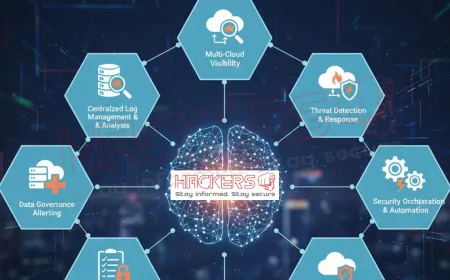How Do Emerging Cybersecurity Laws Impact Startups and Innovators?
Picture this: you’re a startup founder with a brilliant idea for an app that could change the way people shop online. You’re focused on building your product, attracting customers, and securing funding. Then, a customer’s data gets hacked, and suddenly, you’re facing hefty fines because you didn’t comply with a new cybersecurity law you barely understood. Emerging cybersecurity laws, designed to protect data from hackers, are reshaping the landscape for startups and innovators. These regulations, like the EU’s GDPR or India’s DPDPA, aim to keep personal information safe but can feel like a maze for small businesses with limited resources. For startups and innovators, these laws bring both opportunities and challenges. This blog, written in clear, beginner-friendly language, explores how these laws impact startups, from compliance hurdles to innovation opportunities. Whether you’re a tech entrepreneur or just curious, let’s dive into what these laws mean for the next big idea.

Table of Contents
- What Are Emerging Cybersecurity Laws?
- Why Startups Are Affected
- Key Cybersecurity Laws Impacting Startups
- Challenges for Startups and Innovators
- Comparing Global Cybersecurity Laws
- Opportunities Created by These Laws
- Strategies for Compliance
- Conclusion
- Frequently Asked Questions (FAQs)
What Are Emerging Cybersecurity Laws?
Cybersecurity laws are rules that tell businesses how to protect data like customer names, emails, or payment details from cyber threats such as hacking or data breaches (when sensitive information is stolen). Emerging laws are newer regulations, often updated to address modern threats like artificial intelligence (AI)-driven attacks or ransomware (malware that locks data until a ransom is paid). These laws require companies to use security measures, like encryption (scrambling data so only authorized people can read it), get user consent for data collection, and report breaches quickly. They also set penalties for non-compliance, which can hit startups hard. For innovators, these laws shape how they design products, handle data, and compete in the market.
For a startup, these laws are like a rulebook for keeping customer data safe while avoiding legal trouble in a digital world.
Why Startups Are Affected
Startups and innovators, often small teams with big ideas, are particularly impacted by cybersecurity laws. Here’s why:
- Limited Resources: Startups often lack the budget or staff to implement complex security measures or hire legal experts.
- Data-Driven Products: Many startups rely on customer data for apps or services, making compliance with laws like GDPR mandatory.
- Global Reach: Even small startups can serve customers worldwide, exposing them to multiple countries’ regulations.
- High Stakes: A single data breach or fine can cripple a startup’s finances or reputation, unlike larger companies.
- Innovation Pressure: New laws can limit how startups use cutting-edge tech, like AI, affecting product development.
While these laws protect customers, they can feel like a heavy burden for startups trying to grow fast and innovate.
Key Cybersecurity Laws Impacting Startups
Several new and evolving laws affect startups globally. Here are the key ones to know:
- General Data Protection Regulation (GDPR): An EU law requiring consent for data collection, secure storage, and breach reporting within 72 hours. Applies to startups serving EU customers, with fines up to €20 million or 4% of global revenue.
- Digital Personal Data Protection Act (DPDPA): India’s 2023 law mandates consent and data protection for Indian residents’ data, with fines up to ₹250 crore.
- California Consumer Privacy Act (CCPA): A U.S. law giving California residents rights to access, delete, or opt out of data sales, with fines up to $7,500 per violation.
- Cybersecurity Maturity Model Certification (CMMC): A U.S. standard for businesses working with the Department of Defense, requiring cybersecurity audits.
- Personal Information Protection Law (PIPL): China’s law requires data localization (storing data locally) and consent, with fines up to ¥50 million.
These laws set high standards but can challenge startups with their complexity and costs.
Challenges for Startups and Innovators
Emerging cybersecurity laws create significant hurdles for startups. Here are the main challenges:
- Cost of Compliance: Security tools, audits, and legal advice can be expensive for startups with tight budgets.
- Complex Regulations: Laws like GDPR have detailed rules that are hard to navigate without specialized knowledge.
- Global Compliance: Startups serving international customers must follow multiple laws, like GDPR and PIPL, which differ in scope.
- Innovation Restrictions: Strict data rules can limit how startups use AI or big data, slowing product development.
- Risk of Fines: Non-compliance penalties can be devastating, threatening a startup’s survival.
These challenges can feel daunting, but they also push startups to prioritize security and build trust with customers.
Comparing Global Cybersecurity Laws
Cybersecurity laws vary by region, affecting startups differently. Here’s a comparison:
| Law | Region | Focus | Startup Impact | Penalty |
|---|---|---|---|---|
| GDPR | EU | Privacy | Complex compliance | €20M or 4% revenue |
| DPDPA | India | Data protection | Moderate complexity | ₹250 crore |
| CCPA | USA (CA) | Consumer rights | Data access demands | $7,500 per violation |
| PIPL | China | State control | Data localization costs | ¥50M |
| CMMC | USA | Defense contracts | Audit requirements | Loss of contracts |
GDPR and PIPL are strict, DPDPA is emerging, CCPA focuses on user rights, and CMMC targets specific sectors, each posing unique challenges for startups.
Opportunities Created by These Laws
While challenging, cybersecurity laws also open doors for startups and innovators:
- New Markets: Startups can develop affordable compliance tools, like encryption software, for other small businesses.
- Customer Trust: Being compliant builds credibility, attracting customers who value data security.
- Innovation Incentives: Laws encourage startups to create secure, privacy-focused products, like apps with built-in encryption.
- Partnerships: Compliant startups can work with larger companies or governments requiring high security standards.
- Competitive Edge: Early compliance gives startups an advantage over competitors struggling with regulations.
These opportunities let startups turn compliance into a strength, driving growth and innovation.
Strategies for Compliance
Startups can stay compliant without breaking the bank. Here are practical strategies:
- Know Your Laws: Identify which regulations apply based on your customers or industry (e.g., GDPR for EU users).
- Start Simple: Use free or low-cost tools like antivirus software, firewalls, or open-source encryption.
- Create Policies: Write clear data protection policies, like how you handle customer data, to meet legal requirements.
- Train Your Team: Teach employees to avoid mistakes, like clicking phishing emails (fake emails to steal data).
- Leverage Experts: Use affordable consultants or online compliance platforms to navigate complex laws.
- Build Secure Products: Design apps or services with privacy in mind, like minimizing data collection.
- Plan for Breaches: Have a simple plan to report breaches quickly, meeting laws like GDPR or DPDPA.
These steps help startups stay compliant while focusing on growth and innovation.
Conclusion
Emerging cybersecurity laws, like GDPR, DPDPA, and CCPA, are reshaping the startup landscape, bringing both challenges and opportunities. While compliance can strain limited budgets and restrict innovation, it also builds trust, opens new markets, and encourages secure product design. Startups face hurdles like complex rules and global compliance but can overcome them with practical strategies like using affordable tools, training staff, and leveraging experts. For innovators, these laws are a chance to stand out by prioritizing security and privacy. By staying informed and proactive, startups can navigate this complex world, turning cybersecurity laws into a springboard for success in a data-driven future.
Frequently Asked Questions (FAQs)
What are cybersecurity laws?
They’re rules requiring businesses to protect data from cyber threats, like hacking, with penalties for non-compliance.
Why do cybersecurity laws affect startups?
Startups handle customer data and often lack resources to meet complex regulations, risking fines or reputational damage.
What is GDPR?
An EU law requiring consent, data protection, and breach reporting within 72 hours, with fines up to €20 million.
What is India’s DPDPA?
The 2023 law mandates consent and data security for Indian residents’ data, with fines up to ₹250 crore.
What is the CCPA?
California’s law gives residents rights to access or delete data, with fines up to $7,500 per violation.
What is China’s PIPL?
It requires data localization and consent, with fines up to ¥50 million for non-compliance.
What is a data breach?
It’s when hackers steal sensitive information, like customer data, without permission.
What is encryption?
Encryption scrambles data so only authorized users can read it, required by many laws.
Why is compliance expensive for startups?
Security tools, audits, and legal advice cost money, which startups with limited budgets struggle to afford.
Can startups afford compliance?
Yes, by using free tools, simple policies, and affordable consultants or online platforms.
What is a firewall?
A firewall blocks unauthorized access to systems, a key tool for meeting cybersecurity regulations.
What is ransomware?
Malware that locks data until a ransom is paid, a growing threat startups must address.
Why do global laws matter?
Startups serving international customers must comply with multiple laws, like GDPR and PIPL.
What is phishing?
Fake emails or messages designed to steal data, which employees need training to avoid.
How can startups innovate under laws?
By building secure, privacy-focused products, like apps with minimal data collection.
Can compliance help startups grow?
Yes, it builds trust, attracts customers, and opens partnerships with larger companies.
What is the CMMC?
A U.S. standard requiring cybersecurity audits for startups working with the Department of Defense.
How often should startups check compliance?
Regularly, especially after new laws or customer expansions, to stay aligned with regulations.
Can startups develop compliance tools?
Yes, creating affordable security or privacy tools is a growing market for innovators.
How can I protect my startup’s data?
Use encryption, train staff, follow relevant laws, and have a breach response plan.
What's Your Reaction?










































































